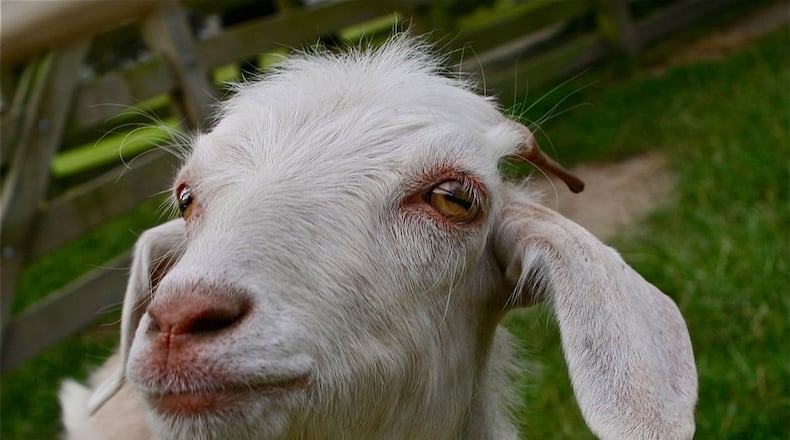Q: My yard has been taken over by English ivy! What's the good and bad about using goats to clear it out? Philip Andrews, Roswell
A: Goats are cute and you'll never run out of stories to tell about the time they lived at your house. But English ivy is not their favorite food. They will eat your shrubbery before they consume the ivy. That may be protective behavior on their part, since English ivy leaves are slightly toxic. If you can fence off your shrubbery, goats may be the solution to your problem. When you've found a company to supply goats, ask if you can visit a property where they have finished clearing English ivy to make sure you're satisfied with what the goats can do.
Q: Are the disposal guidelines for putting liquid weed killer into kitty litter still correct? What about powdered and granular pesticides? Pam Stanley, Columbia County
A: Yes, if you have a liquid pesticide you can't use or which doesn't have a label, pour it into a kitty litter product that comes in a plastic container with a screw cap. Dry products should be triple bagged in trash bags. Both can then be dropped in your household trash.
Q: Is it safe to use horse manure in large garden? I'm retiring and have plenty of land to plant vegetables to give to my neighbors. I will be getting the manure from a local stable. Tommy Klein, Blue Ridge
A: I admire your generous nature but you have to be absolutely sure the horse pasture has not been treated with herbicide. There are several products available that control pasture weeds and are safe for horses to consume. But some of the chemicals can pass through a horse and remain in its manure for up to a year. If you use this contaminated manure on your garden, you can severely damage your plants, particularly your tomatoes. I have tips on how to test manure for the presence of herbicides at bit.ly/GAmanuretest.
Q: Back in my younger days we picked golf-ball-size green crab apples that were incredibility sour but tasted so good. What kind of trees were they? Jim Jordan, Douglas County
A: A crab apple is defined as any apple whose mature fruit is less than 2 inches in diameter, which is about the size of the fruit on the tree you remember. But true crab apples almost never have green fruit. They are typically red, orange or yellow. There are a couple of green-fruited crab apples, but the fruit is the size of a cherry. My bet is the fruit you remember so fondly was actually from an apple tree that had not been taken care of, or maybe one that sprouted randomly from an apple seed. Poor care leads to apples that drop before they mature so you might never see red apples on such a tree. I think you'd be greatly tempted to eat the sour green apples that were hanging when you passed by.
About the Author
The Latest
Featured

